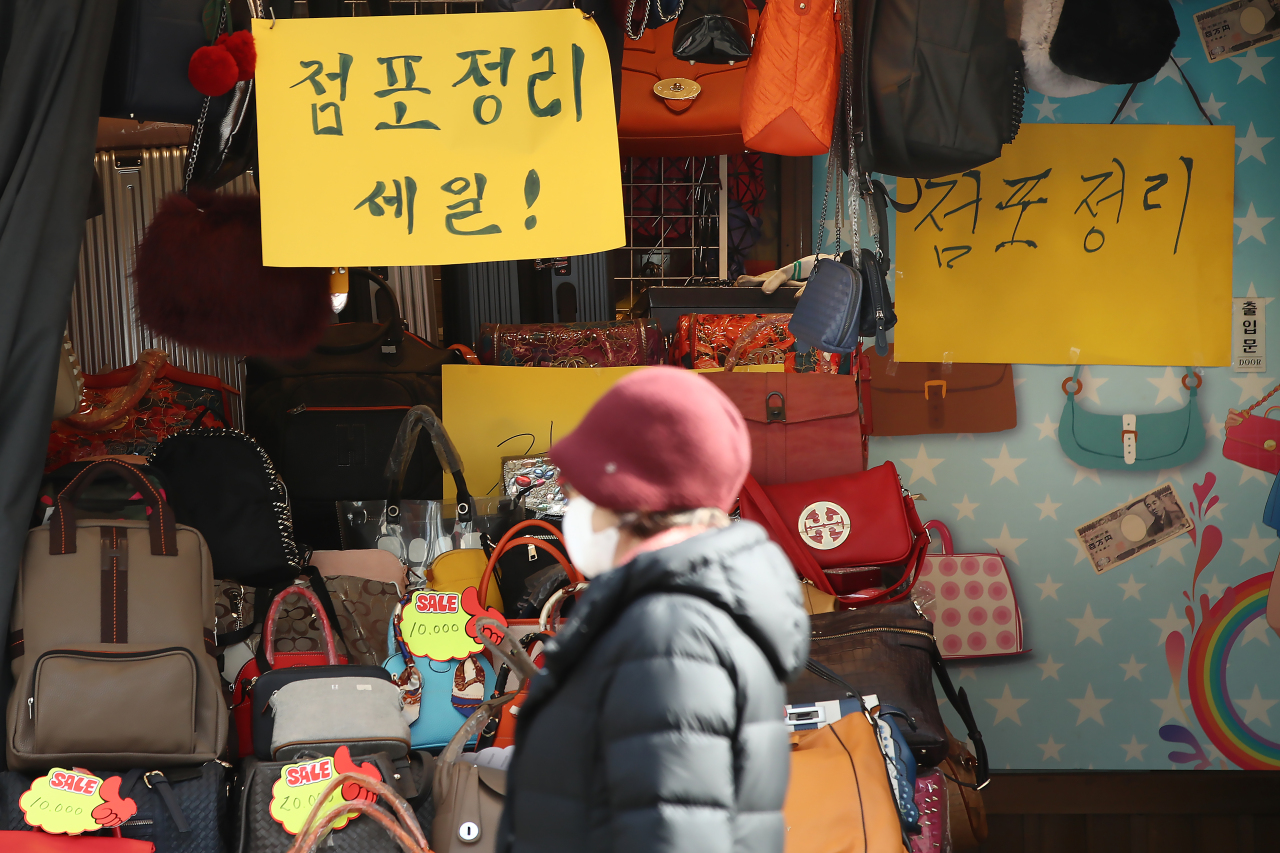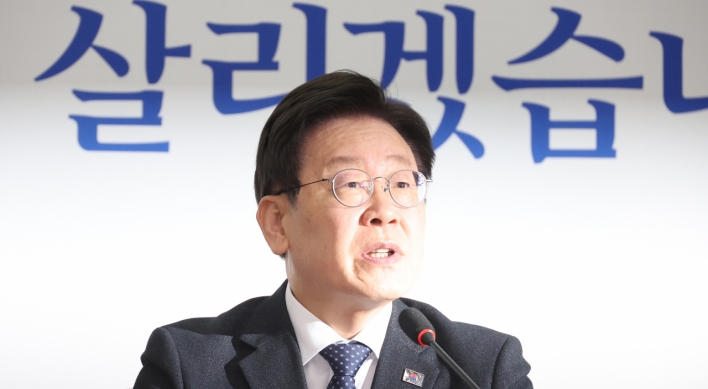Households' income from wage, biz operations dips for 3rd quarter in Q4 amid pandemic
By YonhapPublished : Feb. 18, 2021 - 13:25

South Korean households' income earned through wages and business operations fell for the third straight quarter in the fourth quarter of last year amid the coronavirus pandemic, data showed Thursday.
The average household earned 5.16 million won ($4,670) per month in the October-December period, up 1.8 percent from the previous year, according to the data compiled by Statistics Korea.
But household income earned through wages and business operations declined for the third consecutive quarter amid the pandemic, the statistics agency said.
Wage income dipped 0.5 percent on-year, and income from business operations declined 5.1 percent in the last quarter, marking the sharpest-ever fall.
"A flare-up in new coronavirus cases dealt a blow to employment in the face-to-face services and the self-employed sectors," Jeong Dong-myeong, a senior Statistics Korea official, said at a press briefing.
Stung by the pandemic, the country has reported job losses every month since March last year. In January, it shed 982,000 jobs, the largest loss in more than two decades.
But transfer income backed by the government's support jumped 22.7 percent on-year in the fourth quarter as the country provided emergency handouts to small merchants and shop owners hit hard by the pandemic.
"The underprivileged suffered a fall in earned income, but the government's policy response, including an extra budget, helped offset such decline," the finance ministry said in a statement.
Last quarter, the average household spent 3.89 million won per month, down 0.1 percent from a year earlier, the data showed.
Households' monthly consumption expenditure amounted to 2.91 million won, down 0.1 percent from the previous year, led by falls in spending on hospitality and education services.
Meanwhile, the income gap between the haves and have-nots widened in the fourth quarter as the employment situation of the low-income bracket worsened, according to the data.
The average monthly income of the bottom 20 percent income bracket rose 1.7 percent on-year to 1.64 million won.
In comparison, households in the upper 20 percent income range earned 10 million won per month, up 2.7 percent from a year earlier.
As a result, the country's distribution ratio for disposable income, a key barometer of earnings equality, reached 4.72 in the fourth quarter, up from 4.64 a year earlier. A higher ratio means increased inequality in income distribution.
The COVID-19 pandemic has been deepening inequality in South Korea as the pace of recovery is different between sectors and businesses, known as a "K-shaped recovery." (Yonhap)
The average household earned 5.16 million won ($4,670) per month in the October-December period, up 1.8 percent from the previous year, according to the data compiled by Statistics Korea.
But household income earned through wages and business operations declined for the third consecutive quarter amid the pandemic, the statistics agency said.
Wage income dipped 0.5 percent on-year, and income from business operations declined 5.1 percent in the last quarter, marking the sharpest-ever fall.
"A flare-up in new coronavirus cases dealt a blow to employment in the face-to-face services and the self-employed sectors," Jeong Dong-myeong, a senior Statistics Korea official, said at a press briefing.
Stung by the pandemic, the country has reported job losses every month since March last year. In January, it shed 982,000 jobs, the largest loss in more than two decades.
But transfer income backed by the government's support jumped 22.7 percent on-year in the fourth quarter as the country provided emergency handouts to small merchants and shop owners hit hard by the pandemic.
"The underprivileged suffered a fall in earned income, but the government's policy response, including an extra budget, helped offset such decline," the finance ministry said in a statement.
Last quarter, the average household spent 3.89 million won per month, down 0.1 percent from a year earlier, the data showed.
Households' monthly consumption expenditure amounted to 2.91 million won, down 0.1 percent from the previous year, led by falls in spending on hospitality and education services.
Meanwhile, the income gap between the haves and have-nots widened in the fourth quarter as the employment situation of the low-income bracket worsened, according to the data.
The average monthly income of the bottom 20 percent income bracket rose 1.7 percent on-year to 1.64 million won.
In comparison, households in the upper 20 percent income range earned 10 million won per month, up 2.7 percent from a year earlier.
As a result, the country's distribution ratio for disposable income, a key barometer of earnings equality, reached 4.72 in the fourth quarter, up from 4.64 a year earlier. A higher ratio means increased inequality in income distribution.
The COVID-19 pandemic has been deepening inequality in South Korea as the pace of recovery is different between sectors and businesses, known as a "K-shaped recovery." (Yonhap)




![[Herald Interview] 'Amid aging population, Korea to invite more young professionals from overseas'](http://res.heraldm.com/phpwas/restmb_idxmake.php?idx=644&simg=/content/image/2024/04/24/20240424050844_0.jpg&u=20240424200058)






![[Hello India] Hyundai Motor vows to boost 'clean mobility' in India](http://res.heraldm.com/phpwas/restmb_idxmake.php?idx=644&simg=/content/image/2024/04/25/20240425050672_0.jpg&u=)







